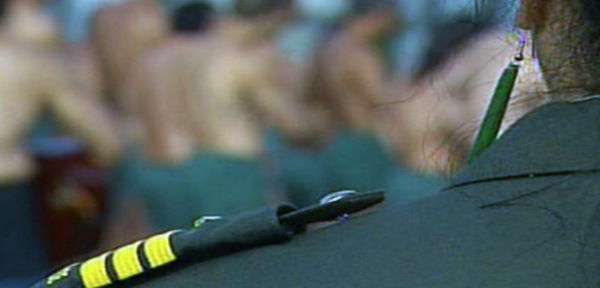
One of the many challenges for the new Government is how to combat the racist Prison system in New Zealand. Maori make up 14.9% of the population yet as of June this year, 50.4% of the 10 260 inmates in prison are Māori.
This appalling mutation of colonialism is of such concern that the UN keep issuing reports critical of the Government’s increasingly punitive approach to law and order which simply sees more and more Māori locked up for longer and longer sentences.
How do we acknowledge this unjust unconscious bias against Māori so prevalent within the judicial system and replace that with a system of justice that learns and grows from kaupapa Māori values?
SHORT TERM:12 months
There needs to be a large injection of funding to bring together academics, community service providers and prisoner rights and justice activists to review the current situation we find ourselves in with our imprisonment rate and what solutions we need to adopt to serve justice and rehabilitation.
Re-evaluate imprisonment thresholds – As of June 2017, almost 40% of those imprisoned were for dishonesty, drugs, anti-social behaviour, traffic, administrative errors and property abuse crimes. Do we really need to imprison people for those types of crimes? Isn’t it time we actually started asking if such punitive measures coupled with little chance of early parole were doing more harm than good? Surely prison should be for the worst types of crime.
Ban torture – NZ prisons currently allow torture via solitary confinement which drives prisoners insane. Continuing a punishment method that causes mental damage seems utterly incongruous with the welfare of the prisoner.
Immediate review of Prisoner welfare and mental health – Many of the men and women inside prison have mental health issues, physical health issues and whose welfare has been allowed to deteriorate due to underfunding. An immediate score card to gain some base insight into the mental health and physical health of prisoners would give a snap shot of how dire and counter productive the punitive culture has become.
MEDIUM TERM:2 years
The Prison system needs to start adopting kaupapa Māori values based on the feedback from the reviews. The current culture is based on the punitive suffering of prisoners which makes punishment not redemption the over riding value. This results in prisoners more damaged coming out of prison than when they go in. We need a far more holistic approach in dealing with prisoners if we are to return to society men and women who can re-integraete within our communities.
Parol services – Speak to any community organisation who are involved in rehabilitating prisoners back into society and they always complain bitterly about Parole services. They are alienating, punishment focused and seem to add nothing but fear to keep prisoners in line with. Instead of being a hub of proactive services and programs to help reintegrate prisoners, they are seen as a stick with which to whack prisoners with.
Genuine rehabilitation services – Prisoners can’t get rehabilitation services if they don’t admit their guilt. This leads to prisoners never gaining any access to any rehabilitation service. This needs to change immediately.
Mental health services – Corrections own statistics from 2016 found that 91% of prisoners have mental health issues. The pitiful mental health services available to prisoners only exacerbates those mental health issues.
Re-introduce early parole for first offenders – The Parole system was changed in the early 2000s making it far more difficult for prisoners to self moderate their behaviour in order to get out of prison early. This needs to be reversed.
Re-introduce prisoner rights – Stripping prisoners of their rights, locking them up for longer than they should be and forbidding torture need to be implemented and given the proper respect they deserve. Yes these prisoners have committed crimes, but they remain human beings and as such have the same basic human rights as we all do.
LONG TERM: 3 years
After reforming the prison system and re-funding the support services outside the gate and inside the gate, long term culture changes need to be considered.
Culture change – We need more use of alternative justice practices and cultures with a focus on rehabilitation rather than punishment but this has to be communicated to the public with clear obligations and well resourced safeguards.
Impact of Māori education on cultural alienation and incarceration – Research needs to be conducted to see if there is any connection with Māori who have been raised exclusively within Māori education kaupapa and those who are alienated from their culture and their respective incarceration rates. Anecdotal evidence suggests that those Māori raised exclusively within Māori education kaupapa have a lower incarceration rate and if empirical evidence backs that up, expansion of those education values could be a crucial way to reduce Māori offending rates.
If Māori were imprisoned at the same rate as non-Māori, the prison population would half. If we imprisoned non-Māori at the rate we imprison Māori the prison population would blow out past 30 000.
We have no option but to front up to the truth of our racism, no matter how awkward that is.






It is not just the prisons Martyn its the courts too as many NZers no longer have equal access to a proper lawyer and therefore fair and proper legal representation. And our NZ police they can be very racist having experienced this first hand myself and with my whanau. And when Maori are victims we are also treated badly and our lives aren’t worth as much as Pakeha lives. In my view our NZ Police and the courts treat us unfairly they are locked into their own discriminative and racist long held entrenched views.
Absolutely Michelle. The NatACTs took away a lot of people’s access to legal aid, resulting in people unable to properly defend themselves, and ending up convicted unjustly. They also defunded a lot of the community policing that was allowing cops to get to know the communities they worked in, and nip problems in the bud by helping people, rather than waiting until they broke the law and throwing the book at them.
When you look at all the NatACT reforms that led to an increased prison population, in the context of their denial of prisoners’ right to vote, you start to understand that there was an anti-democratic voter suppression agenda behind these reform. Bomber is right that the entire “justice” system needs to be urgently and thoroughly reformed.
Agree for the most part with this post. But I don’t think funding is so much the biggest problem but what they do with the funding and more focus on raising the entire living conditions of every New Zealander.
The alliance with the Maori party and National failed Maori – the bribes the Maori party got seem to have made Maori statistics worse. Less housing, less mental health, less education, more imprisonment, less representation. So giving money does nothing, it’s results that are important.
Neoliberalism has unfortunately made getting and keeping money and funding more important that whatever the money is being used for.
It does not seem to matter whether a charity or a business or a school. Increasingly money seems to be diverted to middle men or figureheads touting for money than the most vulnerable people who need it.
For example creative NZ or air funding being given to large multinationals (Mediaworks) who probably hire specialists and are experienced to get large amounts of public money while local grass roots creatives who really need the money can’t get any funding because the process and way it works is designed for corporate processes and networkers to get it.
Public money being pumped into expanding schools and prisons rather than the kids learning or the prisoners themselves who are effectively getting less money spent on them. It’s very important to monitor HOW the money is being spent.
Councils spending public money on private lawyers and marketeers and feasibility studies for stadiums rather than public services and reducing rates.
Comments are closed.